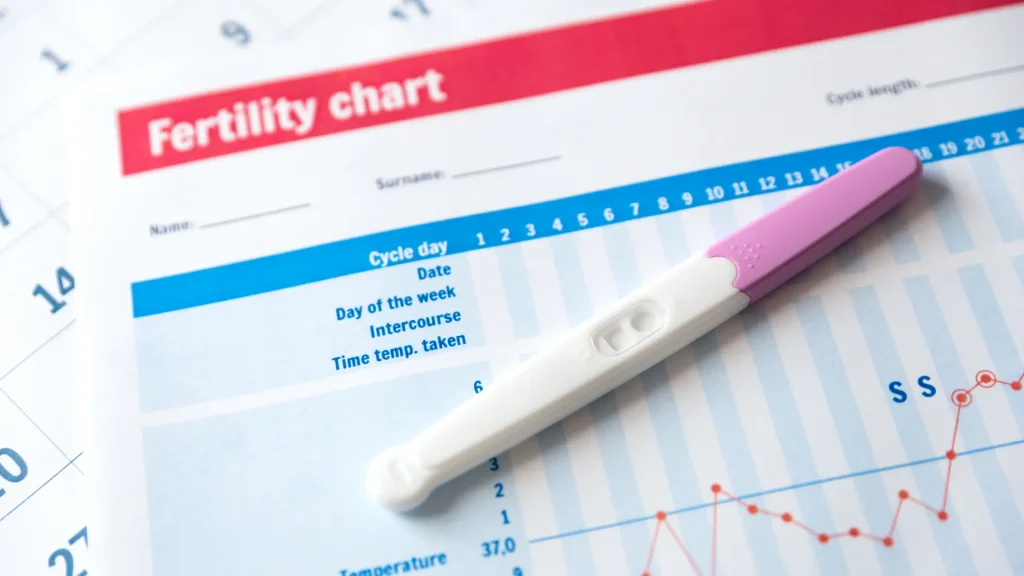The journey of trying to conceive is filled with hope, excitement, and sometimes, a little bit of anxiety. You start tracking your cycles, eating healthier, and eagerly waiting for that positive sign. While every couple’s path is unique, our doctors at Borneo Hospitals want you to know that there are powerful, natural ways to boost fertility. Making small, consistent lifestyle changes can significantly increase fertility and create the perfect environment for a new life.
This advice is often the first and most important step before considering any medical fertility treatment. Think of it as preparing the soil before planting a seed. So, where do you start?
Here are seven doctor-recommended lifestyle changes for couples who are trying to conceive.
It’s a Team Effort: Why These Changes Are for Both Partners
It’s a common myth that fertility is just about the woman’s health. The truth is, it takes two to make a baby, and addressing both male infertility and female infertility factors can double your chances of success. About one-third of cases of difficulty conceiving are due to male factors, one-third to female factors, and the rest is a combination or unexplained. So, as you read these tips, remember to work on them together as a team. This shared effort will not only improve your health but also strengthen your bond on this special journey.
The 7 Doctor-Recommended Lifestyle Changes
1. Master Your Plate: The Fertility Diet
Your fertility diet is your foundation. The food you eat directly impacts your hormones, your egg quality, and your sperm quality.
- For Her: Focus on a diet rich in antioxidants. Eat a rainbow of fruits and vegetables, whole grains like brown rice and oats, and lean proteins. For conditions like
PCOS, managing your carbohydrate intake is especially important. Include healthy fats from nuts, seeds, and avocados. - For Him: Nutrients like zinc (found in chickpeas and pumpkin seeds), selenium (in eggs and brown rice), and antioxidants are vital for healthy sperm.
- What to Limit: Reduce your intake of highly processed foods, sugary drinks, and trans fats, which can harm both male and female fertility. This is one of the simplest
infertility solutions to implement.

2. Find Your Healthy Weight
Your weight plays a huge role in your hormonal balance and ovulation. Being either significantly overweight or underweight can disrupt the menstrual cycle and make conception more difficult.
- If You Are Overweight: Excess body fat can lead to an overproduction of certain hormones that disrupt ovulation. Losing even 5-10% of your body weight can restart
ovulation and dramatically increase fertility. - If You Are Underweight: Not having enough body fat can cause your body to stop producing hormones needed for ovulation.
- The goal is a healthy BMI (Body Mass Index) between 18.5 and 24.9.
3. Move Your Body, Mindfully
Regular, moderate exercise is fantastic for fertility. It helps with weight management, reduces stress, and improves blood flow.
- What’s Good: Aim for about 30 minutes of moderate activity like brisk walking, cycling, or swimming most days of the week. Yoga is particularly beneficial as it reduces stress while improving flexibility and blood flow to the reproductive organs.
- What to Avoid: Very intense, strenuous exercise can sometimes negatively affect ovulation. It’s all about finding a happy balance.
4. Say Goodbye to Harmful Habits
This is non-negotiable for any couple trying to conceive.
- Smoking: It ages your ovaries and depletes your egg supply. In men, it damages sperm DNA and reduces sperm count. Quitting is one of the most powerful
natural ways to boost fertility. - Alcohol: Heavy drinking is linked to ovulation disorders in women and reduced testosterone and sperm quality in men. It’s best to cut back significantly or stop altogether.
- Caffeine: While a small cup of chai is fine, high caffeine intake has been linked to difficulty conceiving. Try to limit it to under 200mg per day (about one or two small cups).
5. Manage Your Stress (Tension) Levels
In today’s fast-paced world, managing tension is crucial. Chronic stress can interfere with the hormones that signal your ovaries to release eggs.
- Find Your Calm: Practice meditation, deep breathing exercises, or simply spend time in nature.
- Prioritise Sleep: Aim for 7-8 hours of quality sleep per night. Poor sleep can throw your hormones off balance.
- Digital Detox: Taking breaks from screens, especially before bed, can improve sleep and reduce mental clutter.
6. Time It Right: Understand Your Ovulation Cycle
You can only get pregnant during a small window each month around the time of ovulation. Understanding your cycle is key.
- Track Your Period: Note the start date of your period each month to understand the length of your cycle. Ovulation usually happens about 14 days before your next period starts.
- Look for Signs: Changes in cervical mucus (it becomes clear and stretchy like egg whites) are a good indicator. You can also use ovulation predictor kits (OPKs) from the pharmacy.
7. Review Your Environment
Some environmental factors can affect fertility.
- For Him: The testicles need to be slightly cooler than the rest of the body to produce healthy sperm. Avoiding hot tubs, saunas, and placing laptops directly on the lap for long periods can help.
- For Both: Be mindful of exposure to industrial chemicals, pesticides, and plastics like BPA. While it’s impossible to avoid everything, simple steps like choosing glass over plastic containers can make a difference.
How Long Should You Try Naturally? When to See a Fertility Specialist
This is a very common question. While these lifestyle changes can bring great fayda (benefit), it’s also important to know when to seek professional medical advice. The general guidelines are:
- If you are under 35: It’s reasonable to try naturally for up to one year.
- If you are 35 or older: You should see a fertility specialist after six months of trying to conceive without success.
- See a doctor sooner if: You have known issues like PCOS, endometriosis, or very irregular periods.
If you are experiencing difficulty conceiving, it is not a sign of failure. It is simply a sign that it’s time to seek a little extra help.

Your First Step Towards a Diagnosis
A consultation with a fertility specialist is the first step towards a medical fertility treatment plan. At Borneo Hospital, this involves a comprehensive Fertility Assessment for both partners, including blood tests to check hormones (like an AMH test, an ultrasound scan for the female partner, and a semen analysis for the male partner. This gives us a complete picture and helps us create a personalised plan for you, which may range from simple ovulation induction to more advanced treatments like IUI or IV.
Your Journey to Parenthood Starts with a Single Step
Embracing these seven lifestyle changes is a powerful and proactive way to take control of your fertility journey. It’s a commitment you make to yourself, your partner, and your future family. And if the road has a few more turns than expected, remember that expert help is available. Sometimes, a little medical guidance is all that’s needed to reach your destination. Seeking a proper fertility treatment is a sign of strength.
Consult Our Experts
If you have been trying to conceive and have questions, or if you feel it’s time to speak with an expert, we encourage you to consult with the doctors at Borneo Hospitals. Our team provides compassionate and comprehensive care to help you build your family.
You can visit your nearest Borneo Hospital branch in Thane, Nashik, Waluj, or Raipur.
If it’s easier for you, you can also call our helpline for advice. We invite you to make an appointment with our esteemed Obstetrician and Gynaecologist, Dr. Vrushali Pillai (MBBS, DGO). She can provide you with a personalised roadmap, from lifestyle advice to advanced fertility treatment, all with the care you deserve.
Further Reading & Authoritative Sources
- World Health Organisation (WHO): Infertility
- The American College of Obstetricians and Gynaecologists (ACOG): Evaluating Infertility
- American Society for Reproductive Medicine (ASRM): Optimising Natural Fertility: A Committee Opinion
- Human Reproduction Update (Research Paper): The impact of lifestyle factors on reproductive performance in the general population and those undergoing infertility treatment: a review



